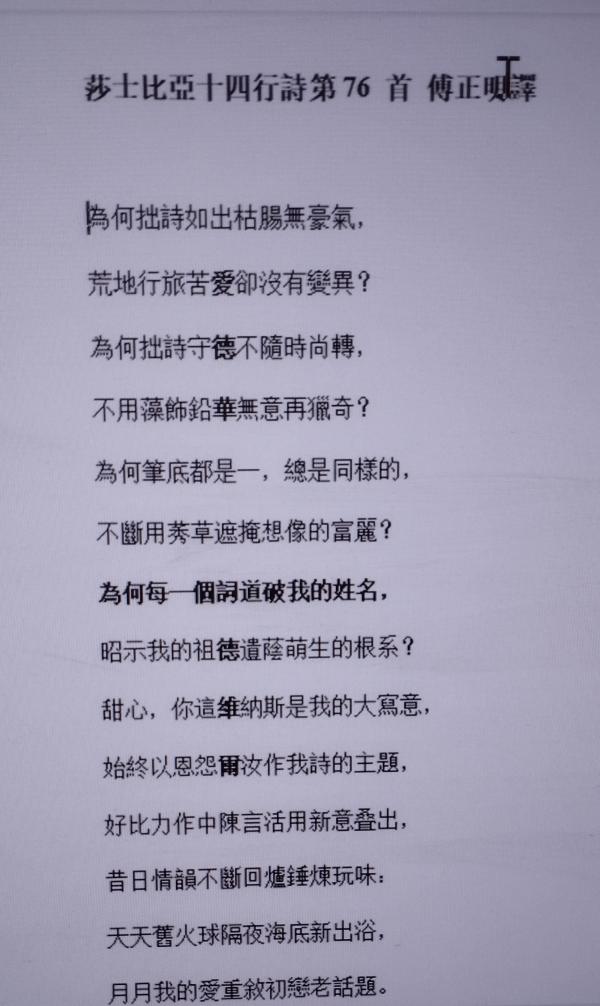
莎士比亚十四行诗第 76 首
傅正明译 为何拙诗如出枯肠无豪气,
荒地行旅苦爱却没有变异?
为何拙诗守德不随时尚转,
不用藻饰铅华无意再猎奇?
为何笔底都是一,总是同样的,
不断用莠草遮掩想像的富丽?
为何每一个词道破我的姓名,
昭示我的祖德遗荫萌生的根系?
甜心,你这维纳斯是我的大写意,
始终以恩怨尔汝作我诗的主题,
好比力作中陈言活用新意迭出,
昔日情韵不断回炉锤炼玩味:
天天旧火球隔夜海底新出浴
月月我的爱重叙初恋老话题。 Sonnet 76: BY WILLIAM SHAKESPEARE Why is my verse so barren of new pride, So far from variation or quick change? Why with the time do I not glance aside To new-found methods, and to compounds strange? Why write I still all one, ever the same, And keep invention in a noted weed, That every word doth almost tell my name, Showing their birth, and where they did proceed? O know, sweet love, I always write of you, And you and love are still my argument, So all my best is dressing old words new, Spending again what is already spent: For as the sun is daily new and old, So is my love still telling what is told. 爱德华·德维尔,十七世牛津伯爵(Edward De Vere, the seventeenth earl of Oxford,1550-1604)最可能为莎士比亚全部着作的真实作者。在英国文学 史上,同时代的人把德维尔称为多才多艺的抒情诗人、宫廷诗人和剧作家。据 说他性格高傲,于十六世纪80年代失去伊莉莎白女王的宠爱,被逐出宫廷,因 此有可能广泛接触了英国社会,同时游历过义大利等欧洲各国。英国学者托马 斯·卢尼(Thomas Looney)于1922年出版《莎士比亚鉴定》(Shakespeare identified in Edward De Vere, the seventeenth earl of Oxford)一书力求从德维尔的生平与莎剧场景的平行研究中寻找旁证,由此形成莎翁着作权怀疑派中最重要的一派,即牛津派(Oxfordian theory)。此说已接近尘埃落定。 多位莎学家认为莎士比亚十四行诗第76首以代码和密码嵌入了诗人姓氏De Vere 等多种信息,但需要特殊的解码方法才能破解。笔者的中译挑明了这一点。
|
